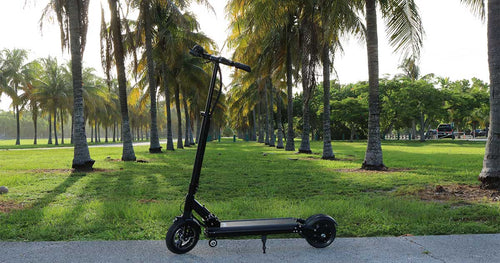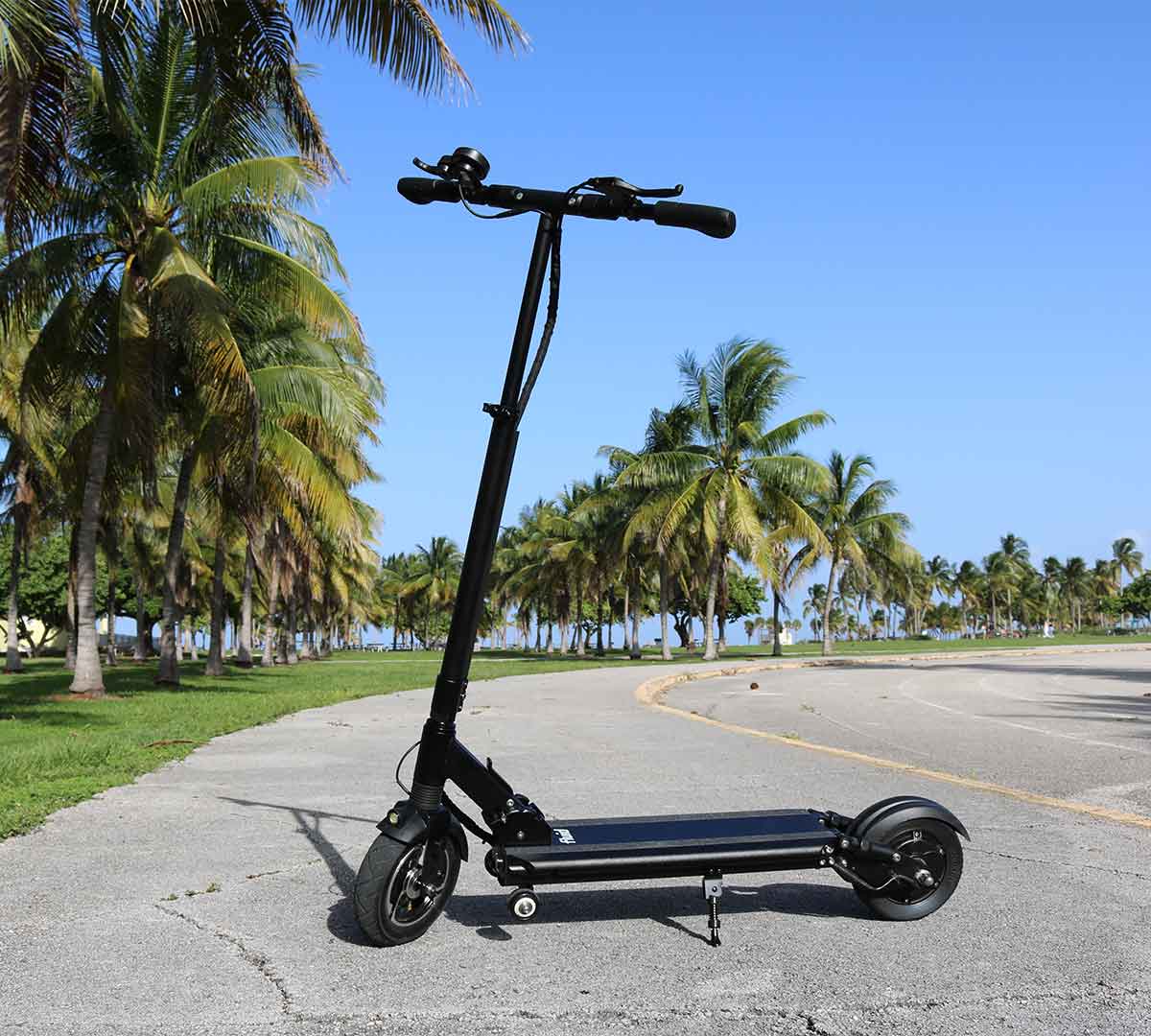Are Electric Vehicles Worth it? Save Money with EVs
- Read Time: 13 min
The question, "is an electric vehicle worth it?" might mean a couple of things. Apart from the benefits of less carbon dioxide being released into the atmosphere when using it (a big worth), the next factor will most likely be financial followed by practicality.
The potential buyers of electric vehicles will look at the purchasing price, how cost-effective it is, and overall maintenance cost before deciding which way to go.
The short answer is yes, but it depends on what type and brand even when choosing, as usual with all such things.
Below we cover the pros and cons in detail.
Electric Vehicles

With the further development of ev batteries, the internal combustion engine now has a competitor regarding what type of power source a vehicle can have.
The one we see the most on the road is the electric car where Tesla leads the way but does have more and more competitors, or should we say, companions, following the trail.
And it's not only mid-sized or smaller cars but also electric SUVs and big pick-ups such as the Ford F-150 Lightning.
General Motors have stated that all their brands will be electric cars by 2035 and many car manufacturers have similar goals and plans. Battery technology is evolving and we might see alternatives to lithium-ion batteries in the near future which will have a huge impact on battery manufacturing.
Fully electric vehicles also include bigger pick-ups, as well as trucks hauling big rigs. And they are steadily picking up pace adding to rising ev sales figures. Scania and MAN are pouring almost 2 billion USD into R&D.
Big rigs and long-haul trucks are not quite there yet when it comes to TCO (Total cost of ownership) compared to conventional rigs but medium-sized trucks are. Lighter electric trucks, buses, and similar commercial vehicles are now on par with diesel or gas-powered cars TCO for shorter distances such as inner city travels.
Electric motorcycles do exist but have not yet shared the same success as electric cars. In fact, four of the most famous EV motorcycle startups in recent years have filed for bankruptcy.
And this begs the question, what is going on here?
The first issue would be the gearing. All electric vehicles run on a single gear. And that gear can favour low or high-speed efficiency. This means that while an electric motorcycle would use little to no energy sitting at a red light, once accelerating up to the necessary speed, it saps a lot of energy, reducing range.
Electric cars have a secondary motor to solve this issue which would not be a viable option for the electric motorcycle as it would get too heavy.
Add to that the car's lower center of gravity with sleeker aerodynamics and there is a big difference.
The rider on a motorcycle creates air resistance. Even though fairings can improve the airflow, they will also add weight as would the need for an extra battery to improve range. So while an electric car can easily reach 300 miles (482 km) of range, the equivalent EV motorcycle will struggle to reach a third of that. At the time of writing, an EV motorcycle seems more like a niche vehicle rather than a trend.
Electric bicycles have caught on properly. And that is easy to understand. Not so much different from a regular bike, it has all the same benefits and more. Sure, it is a bit heavier but the added power that weight offers means anyone can now travel faster and longer on an e-bike with less effort than on a regular bike.
It also helps the appeal that many countries and governments offer various tax credits when you buy one.
The one electric vehicle that we probably see the most though, would be the electric scooter. They seem to be everywhere at least in bigger cities as part of share programs. But even in rural landscapes, they are an ever more common sight.
Easy to use and very portable in most cases, they have filled a gap where the choice between taking a bike or the car for shorter errands, usually favours the car which doesn't help with tailpipe emissions. Now, this perfect little electric vehicle offers a choice and one that is fun to use at that. No wonder it caught on and it seems every household will have one at some point.
Electric cars
Sitting down with a calculator is where owning an EV journey begins when considering getting an electric car. And for this example, we won't cover the supersmall two-seater options but more the equivalent of conventional automobiles.
How much do electric cars cost? All electric cars are not massively expensive and you can get one at around $26 500 but obviously, you should not expect topline performance at this end of the scale.
The electric cars available as entry-level vehicles are smaller ones. Not exactly what you would choose if you have a family. And they won't be loaded with the same spec list as a comparable gas-powered car for the same asking price.
If you get a gas-powered vehicle at the same price, you can get a lot of car for your money if you choose wisely. And should you opt for a used car, even more so. Older gas powered cars have a lot going for them if you know what you are looking for.
Apart from specs, transportation costs, or rather cost per mile will be next on the list. This is a tricky one. If all things were relatively constant, it would be an easy calculation to make. The price you need to pay for a full "tank" of fuel or electricity divided by the distance you need to travel times price per gallon or kWh will give you the cost per mile. But with the world changing rapidly, fuel and electricity prices are not relatively constant at all. The opposite in fact.
At the time of writing, 2023, the situation in Europe f.e. with the ongoing war in Ukraine since the beginning of 2022, has turned the energy world upside down and produced sky-high electricity costs.
Charging your car at the average charging station can be very expensive as the kWh price can be through the roof.
Even the home charging station is affected. Since the price is fluctuating and some parts of the day are super expensive, should you charge during those hours, bigger powerful electric cars will be more expensive to own and use than gas powered vehicles.
All this means that it will depend on how much and how far you need to travel on a daily basis.
Fuel costs are not the only issue though.
If you look upon your vehicle as more than a commuting tool and you want to go on vacation or longer road trips, there are things you need to know and consider. Even though EV charging stations are constantly being developed and we see more and more of them, their availability is still not as frequent as petrol stations. Yet.
And you need to rethink your way of traveling. I spoke to a friend in Europe who wanted to take his Tesla for an 800-mile trip to the alps. He had to stop and recharge about ten times, and each time took approximately 60 minutes. It would take me about 15 hours to do the same journey in a gas powered car if I drove it in one go. I would need to stop 2-3 times for refueling which takes about 5-10 minutes per occasion including the obligatory toilet visit.
It would take my friend 25 hours. This might or might not be a big deal. I suppose it depends on what type of person you are. I would go crazy but that's just me. Electric cars of today, can not compete in this area with regular cars. But they might one day with technology catching up.
An electric car requires less maintenance than regular cars. The number of moving parts is considerably lower in an electric vehicle which makes maintenance easier. No oils or filters are needed, no exhaust system, radiators with fluids, metal on metal wearing clutch systems, and so on. This brings the cost down although some things are the same. Tires, windscreen wipers, and washer fluid, plus general wear & tear will still be factors.
Brakes are not affected in the same way as on a regular car. Even though electric cars are heavier than the ICE equivalent, brakes are not used as much due to regenerative braking being so effective. Tesla has stated that their brake pads can outlast the life of the car even.
The one big worry is if a battery pack needs repairing or replacing. That can set you back from $4000-20 000. The life cycle of a battery pack is not endless, which means that the secondhand market for electric cars is not as attractive as the regular one.
Then there is the federal tax credit to consider. Depending on which electric car you are interested in you might get up to $7500. There are even credits for used cars.
As you can see, if you want to buy an electric car, it is not all black and white. Many various factors come into play and ultimately it is a very specific personal decision. It might not only be the cost of fuel or electricity. There might be other factors. Environmental consciousness, you might like the idea of less maintenance owning an ev requires. After all, not everybody is a petrolhead and electric cars are quiet, some like that.
Most likely it won't be a question of if it's worth it in the future but rather which one is the best electric car for you. The federal government as well as global governments will make sure that new cars will all be electric. Legislation will mandate this, or so we suppose.
And that answer will be the same as with regular cars. It all depends on your needs and desires.
For now, we are not there yet and everybody needs to do their homework to figure out how much the electric car cost on a daily basis.
One option might be to get a smaller cheaper electric car for shorter travels to and from work and keep a regular one for other duties.
Electric Scooter Vehicles

If the above info on electric cars was a lot to process and gave you food for thought, then it is much easier when it comes to electric scooters.
A lot cheaper to say the least. You can get one for as low as a couple of hundred bucks and move your way up to $4000+ for a proper monster scooter that can substitute for a motorcycle. In between, you have all kinds of variations and prices.
The average price for a good commuter scooter lies between $450-1500.
This is where the calculations quickly start to make sense. Using your own electric scooter on a daily basis for a commute will beat anything else with a motor as far as fuel costs and price per mile goes.
Easy to use, portable as they are foldable, and quick as even a modest electric scooter will still do 20 mph (32 kph) which if you try to do on a bicycle over a longer distance means you have to pump really hard and arrive proper sweaty at your destination.
It saves time as nothing can really compete in a crowded congested inner-city scenario. Zip past the slow moving mass of cars, buses, and pedestrians and enjoy it while you do so because they are so much fun to ride.
No need for a charging station as a regular outlet is all that is required. This might be the smartest, most effective electric vehicle that all can still afford.
Maybe that's why they are so popular and continue to develop with all kinds of versions out there.
The Average Cost of Electric Vehicles
The bigger the vehicle the more expensive, this is true for most gas-powered vehicles and it is also true for electric vehicles.
First and foremost is the sticker price. All electric cars are not massively expensive and you can get one at around $26 500 but obviously, you should not expect topline performance at this end of the scale.
In the US, the top ten cheapest electric cars range from $26 500 - 48 200. Some of these are maybe not the best choices if you have range anxiety as they will only be good for 100 miles. But you can get a baseline Tesla Model 3 at around 44 000 USD. Load it with extra specs and the price will rise rapidly.
And you have the well-renowned Nissan Leaf amongst this group which is good for 215 miles (346 km) and is one of the longest-serving ev models on the market, having been around since 2010.
Moving up in the electric car world you will typically see a higher price tag start point at around $48 000, with the sky seemingly the limit. Well almost as you will be paying more than $200 000 for premium brands such as a Porsche Taycan Turbo S. A basic spec Tesla Model X will set you back $106 000. Add more of what you want to it and it is closer to the Porsche in price.
Even when you factor in a tax credit, the decision to buy an electric car is a big one for most people.
The average price of a decent e-bike is around $2000 and goes to $6000. Even though you can get one at around $1000 we wouldn't recommend that. The reason for this is the same as with regular bikes. The frame and other components are where the cost of a bike starts. You need higher-end durable components that won't brake as soon as they feel like it.
If you look at a regular MTB (mountain bike) you will need to pay at least $1500-2000 for a reasonably good one and expect to fork out $3-4000 for a really good one. Brakes and other components need to be able to deal with the wear & tear of that particular vehicle.
The 30% federal tax credit (US) for e-bikes up to $1500 also helps with the average cost.
You can get your own electric scooter for as low as $150. But as with all such things, you are on the lower rung of the totem pole in the world of the electric scooter vehicle. Quality and performance will reflect the budget price.
A small step up will make a big difference. A proper commuter scooter will be from $450 -1500 and for that, you will have plenty of options.
A performance scooter will be $1500-2500 and for a high performance one, expect to pay $2500-4000. These are beast scooters capable of a 60 mph top speed in some cases. There is very little similarity between them and the share scoters we see on a daily basis. Think more of a substitute for a motorcycle. Extended range, 100+ miles. Brutal acceleration, off-road specs in some cases. Loads of battery power. Massively entertaining.
How Environmentally Friendly Are Electric Vehicles?

Studies done by Duke and Harvard Universities and other institutions found that the largest source of climate pollution in the US comes from transportation.
The conclusion is that gas powered cars and trucks are bad for our health. To solve this, the onus lies on governments and manufacturers to make roads as clean as possible. The electric engine seems to be the solution for now.
But hybrid and electric vehicles are not totally clean and emissions-free. Not yet anyway. There is a manufacturing process and sourcing the minerals needed for the batteries is not exactly a clean exercise.
The debate is ongoing but facts are facts.
When an electric vehicle is manufactured, it will produce more global warming emissions than the average gas powered equivalent. This is due to the fact that large lithium-ion batteries require a lot of minerals and materials to build.
For example, a mid-sized 84-mile (135 km) range car, will result in 15% more emissions when manufactured.
But there is good news. The benefit of electric motors is that once on the road, they are more efficient when it comes to converting energy to power the vehicle, and thus the electricity will be cleaner across the whole board, as well as cheaper even if it comes from a dirty grid.
Eventually, there is a break even point where the carbon gap is equaled for the electric vehicle from the day it is sold and the rest of its lifetime. Those estimates vary quite a lot though, depending on assumptions.
However, an electric car, depending on driving habits and style, will give a better fuel economy per mile than similar gas powered equivalents.
Since an electric scooter is such a light and small vehicle compared to a car, the negative environmental impact is nowhere near in comparison. This is a vehicle where the positive impact on the environment very much outweighs the manufacturing issues when producing a battery. Imagine if most shorter inner-city car journeys would be on an electric scooter instead of in a car. It would be a huge positive impact on the air quality.
Electric Vehicle Charging Stations

And while an electric car needs charging stations the e-scooter does not. A regular outlet and socket are just fine. Another benefit of this particular electric vehicle. The development and further expansion of charging stations are crucial for ev owners choosing the electric car.
Financial Benefits of Owning Electric Vehicles
A car will never be a financial benefit whichever version you choose. They are something we need and like to drive but honestly, they are usually a bottomless pit when it comes to running and owning them. Even if your car is an electric vehicle, it still needs car insurance, maintenance, and recharging. And they all depreciate relatively fast. Buy a new car and as soon as you've driven it off the sales lot, it lost 15 % of its value. It's not a new car anymore regardless if you only drove it for 2 minutes. A couple of years down the road it might be 40% off the original price.
Still looking for a bigger benefit you should probably consider some other electric vehicle. One that is considerably cheaper to buy and run.
F.e. if you commute on an e-bike or your own e-scooter it will be impossible to compete with compared to the cost of using the bus, train, or some other option. In the long run, this turns into a significant financial benefit.
If you want to go off-roading, it will be very much cheaper to choose a purpose-built off-road e-scooter than a dirt bike. By quite some margin. Not to mention the noise restrictions.
The Future of Electric Vehicles
In the future, most likely all new vehicle sales will be powered by electric motors. By then the question "is it worth it" will not be part of the equation anymore. We are not there yet but as things stand today, and looking into the crystal ball, it sure seems that way.












